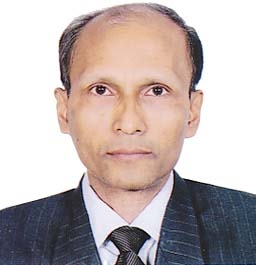
Masum Billah :
On 29 September, Transparency International Bangladesh (TIB) released a report on ‘Secondary Education Activities Implementation: challenges of good governance and the ways of overcoming’ where several grim pictures of corruption have come out that tends to make any conscious individual worried. The report says that recruiting principal, head teacher, assistant teacher, assistant librarian, inspecting and auditing educational institutions getting academic recognition, renewal of agreement, teacher transfer- all of these aspects of education see the involvement of bribe. Besides these, the lengthy process of implementing education policy, irregularities, limitation and some more ‘positive and negative aspects’ have appeared through the report. The employment of principal, head teacher, assistant teacher, transfer of teachers and MPO inclusion call for the amount of bribe Tk 3 lac 50 thousand to Tk 15 lac. To transfer one teacher involves Tk one to two lac. The brokers take this money who are mostly the staff and officials of DSHE. Teachers qualified through NTRCA exam also have to pay bribe amounting to fifty thousand to Tk. 2 lac, assistant librarian employment needs Tk 2 to 3 lac, and inspecting educational institution needs Tk. 50 thousand to five lac. Getting academic recognition needs 1 lac to 5 lac, MPO inclusion demands Tk 5 thousand to one lac per teacher, recognition renewal needs five to thirty thousand taka and transfer of teacher claims Tk one to two lac taka. In this ocean of corruption in education sector where is the quality and skill, where is honesty and professionalism? Money plays the crucial game here. Who will look into the matter? Should we consider the sector of education is similar to others? If we do that, it must be a serious blunder.
In response to TIB report the teacher leaders say “bribing in the education administration is a fact but the amount of bribe may be more or less than TIB infirmed. The management committee is fully involved in employing non-government teachers. The head teachers sometimes have to follow illegal procedures due to the pressure created by the managing committee members who belong to powerful group or political wing. To get MPO giving hush money begins from the field level and it reaches till the highest tier. So, we demand the nationalization of educational institutions and that is the true solution.” A follow-up question arise does the nationalization banish corruption from the field of education? Bribing goes on while transferring government teachers as well as education officials. It also happens in terms of even promoting teachers. It has been identified that the service seekers have to pay a fat amount of bride at least in eight points in the secondary level. On top of that, different development programs witness serious corruption. Teachers and staff remain in their working places year after year even though they are supposed to work in one place usually for three years. Look at NCTB where some officials have been more than two decades. What about other teachers? It is not unknown to us that corruption lies at every step of every department of our country. However, the field of education deserves to remain fresh and clean as it promises to produce honest skilled citizens for the country.
TIB has also identified serious weakness in the field level administrative works of DSHE due to the absence coordinated and skilled manpower. Proper monitoring and inspection also see weakness. Corruption has taken an institutional shape because of these weakness and longtime irregularities. Many works are going on by virtue of executive order and pertinent law has not been developed and enacted. Many important issues of the education policy of 2020 have not been implemented yet. Education law has not been passed so far. National budget for education does not satisfy the international criteria though it seems the budget has increased in terms of amount. However, in reality the case proves opposite. It has been suggested by UNICEF to spend 6 percent of the GDP or 20 percent of the total budget for education of a country. However, that remains between 10 and 12 percent and GDP 2.3 percent if we look at the last ten years ‘national budget. But the countries of South Asia allocate around three to six percent of their GDP for education. In this perspective, TIB suggested to increase the financial facilities of the MPO enlisted teachers and staff and teachers to be developed as more and more efficient and emphasizes the necessity of decreasing teacher- student ratio. TIB has suggested establishing one ‘Regional Educational Management Academy’ to enhance the quality of education by providing training to the teachers. The skills gained by the trained teachers must be tested very rigorously.
It has also suggested to employ non-government teachers through a teacher selection commission and to increase the duration of the training. Close supervision during training of the teachers has also been emphasised and to increase the duration of the training. The irregularities and weaknesses of different projects should be reflected through monitoring and evaluation. In most of the institutions teachers are employed with the influence of SMC that stands as a great barrier of quality education. A reasonable educational qualification must be set for becoming SMC chair and members. The current practice shows that uneducated and uncultured people occupy these positions by virtue of their muscle power seriously vitiating the atmosphere of educational institutions. We must get out of the vicious circle of corruption for the greater interest of the nation, education and our posterity at large. The sooner we can do it the better.
(Masum Billah is President, English Teachers’ Association of Bangladesh).

